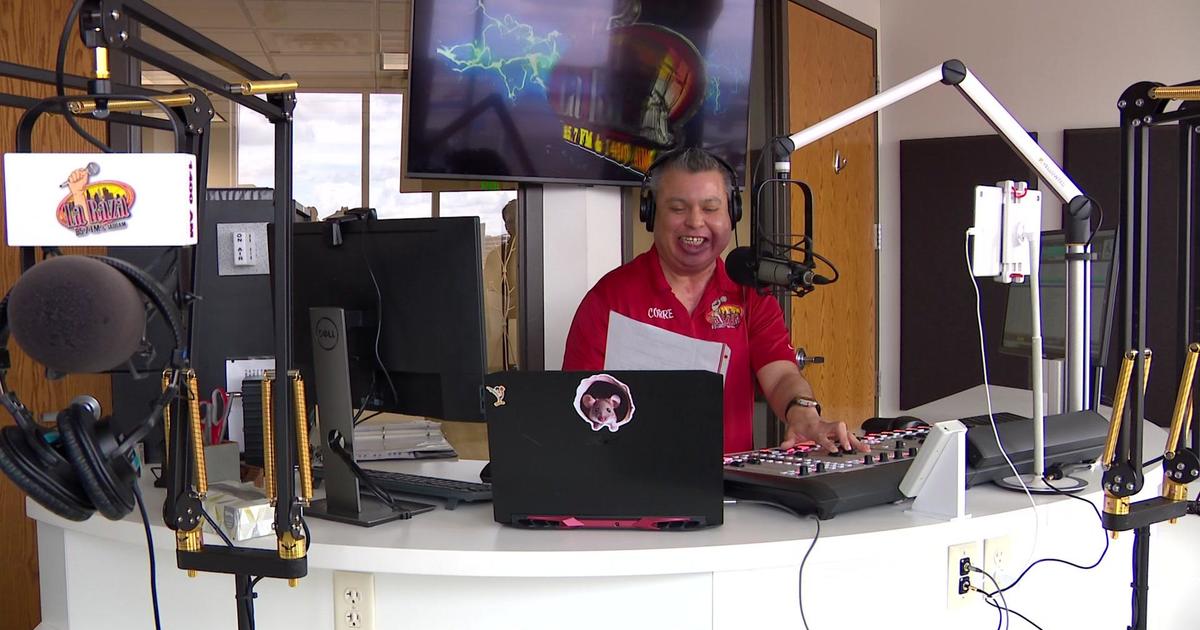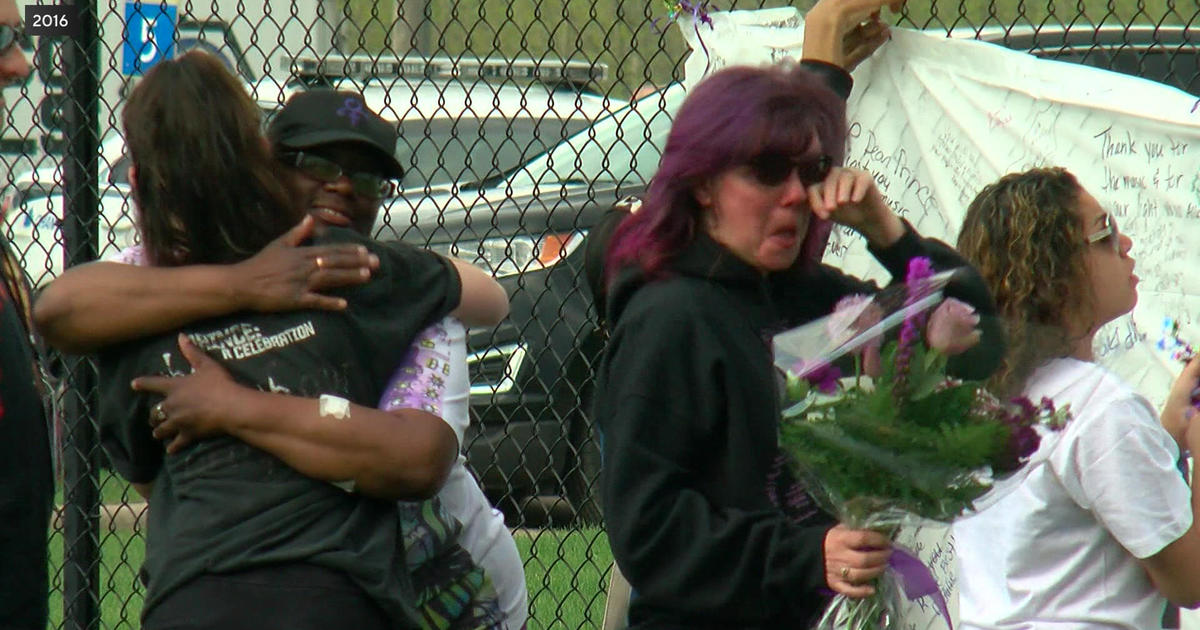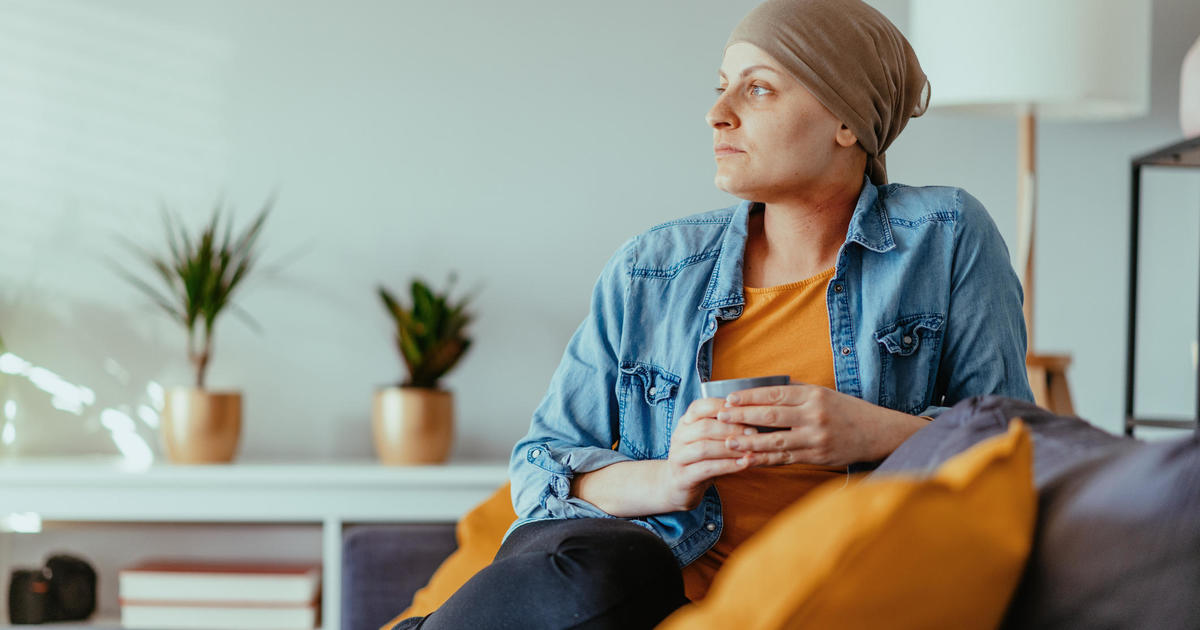Hidden Health Problems At Indoor Playgrounds
MINNEAPOLIS (WCCO) -- With an early start to the flu season this year, many parents are paying close attention to every move their kids make and while those indoor gyms may seem like a good way to beat the winter blues one mother is sure a recent visit got her son sick.
Little Talon isn't able to tell his mom, Laura Schmidt, what hurts just yet but you can easily hear, he does. For more than a week he's had a cough, ear infection and a fever.
"He was a sick boy," Schmidt said.
Schmidt says it all started after visiting a popular indoor playground. The day they visited she noticed a little girl coughing on the equipment.
When she called to see how often workers gave the structure a deep cleaning, they told her once a week.
Little hands and feet spend hours all over the steps and slides, touching every surface. We saw plenty of reminders of this nasty flu season at a few different playgrounds. There are plenty of signs up that remind parents and kids to wash their hands.
But we wanted to see for ourselves what our kids are really up against, so we did our own tests. We visited three indoor playgrounds, swabbing two surfaces at each stop, from a steering wheel, to a rock wall and those plastic balls.
From our phone calls to our visits we found a big difference in how often playgrounds are cleaned.
"It's disinfected nightly and they have a detailed cleaning twice a month," one playground worker told us.
Another said they spend a lot more time -- "Four hours each day between me and another full-time staff," he told us.
A mom from Arizona has spent the last two years exposing what she calls a hidden health problem. Erin Carr-Jordan's stopped at 75 indoor play places across the country recording video and taking samples of her own.
From fast-food restaurants to stand-alone parks, she's found germs that can cause meningitis, skin infections and serious stomach illnesses. She published her findings on her website.
"Often times the restroom is far cleaner than the playground," Carr-Jordan said.
What worried her most, is the fact there are no regulations that require any kind of cleaning. In some cases, there are manufacturer recommendations. Other than that, there are no outside checks.
Carr-Jordan was able to get a law passed in Arizona that regulates the cleaning of indoor playgrounds. Now, she's working with a lawmaker in Minnesota and hopes to get a similar law passed in St. Paul this session.
Minnesota Valley Testing Lab in New Ulm spent days analyzing our samples. The Aerobic Plate Counts were high in every single surface we swabbed. The results showed numbers from 11,000 Colony Forming Units to 150,000 Colony Forming Units.
The number's considered a head count of all the bacteria on the space.
Jesse Portner is the microbiology laboratory manager at Minnesota Valley Testing Labs.
"If it was a surface in my house I would be frightened but I don't have 50 kids in my house touching the same thing," Portner said.
The results showed one particular surface with more than 10 times the amount of germs than the other tests. That belonged to the rock wall. Lab workers think it's just harder to get into the crevices to get all of the rocks clean.
Dr. Harsohena Kaur, a pediatrician at Fairview in Bloomington told us high numbers don't necessarily mean a child will get sick but she says the greater the number, the greater the chance.
Kaur says in most cases, it depends on how a child's immune system holds up. She is concerned with our test results for coliform. Portner is, too.
The lab traced it back to the trunk of a tree. Dr. Kaur said if kids get that bacteria on their hands, there's a good chance they'll catch a serious stomach bug.
There's no indication the indoor playgrounds we tested are any dirtier than any other place where a lot of kids play. So, the Minnesota Department of Health doesn't see a need to step in. It doesn't think setting statewide standards would do anything to prevent the spread of disease.
Doug Schultz is a spokesman with the department.
"There's really not a lot you can do to make the area less germy," Schultz said.
There's no indication the indoor playgrounds we tested are any dirtier than any other place where a lot of kids play.
The health department says washing your child's hands after playing offers the best protection and if your children are sick keep them away from other kids.
Dr. Kaur reminds parents there are risks to staying home.
"I think it's important for kids to get out and play and indoor playgrounds are an important part," Kaur said.
Even though, after a long two weeks it looks like that's exactly where Talon will be.
"Now I just don't know if I want to go back," Laura Schmidt said.



